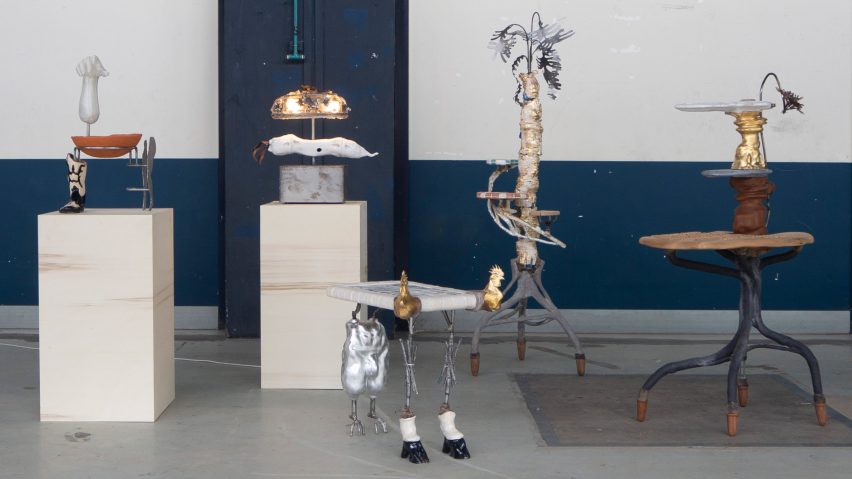
Leo Maher charts a history of homosexuality with Unfamiliar Passions furniture
Design Academy Eindhoven graduate Leo Maher has created a series of unusual furniture pieces that combine references to queer culture from across history.
Unfamiliar Passions is a series of five designs featuring an assortment of visual references, including a cockerel, a backgammon board and an assortment of body parts.
As well as serving a practical function, each object uses a different lens to explore the history and culture of homosexuality, from the time of the Ancient Greeks and Romans right up to the modern day.
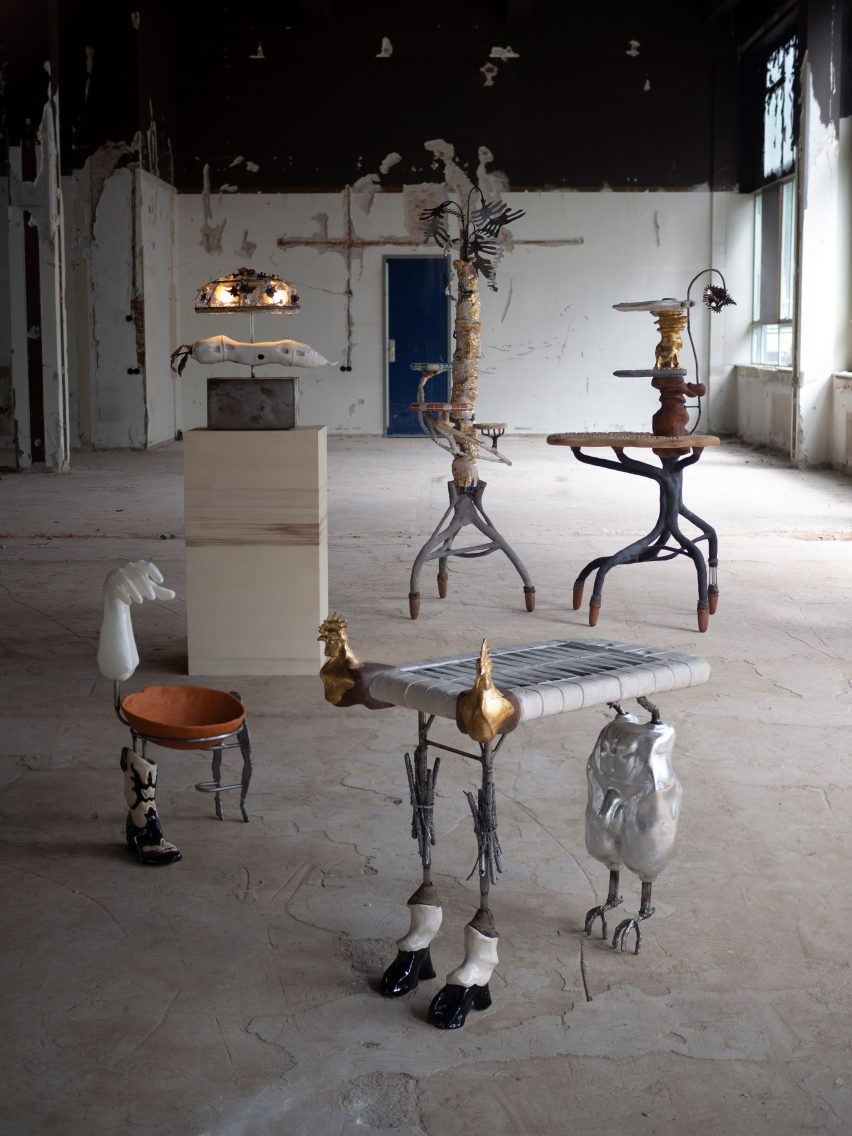
"The series investigates the history of homosexuality and its dance through time and western civilisation," said Maher, who graduated from DAE's bachelor degree programme.
"Each piece of the series explores the heritage of identifiers, legends, euphemisms, deviant behaviours and signalling mechanisms, noting how they transcend cultures and societies before ending up woven into the cloth of modern gay life."
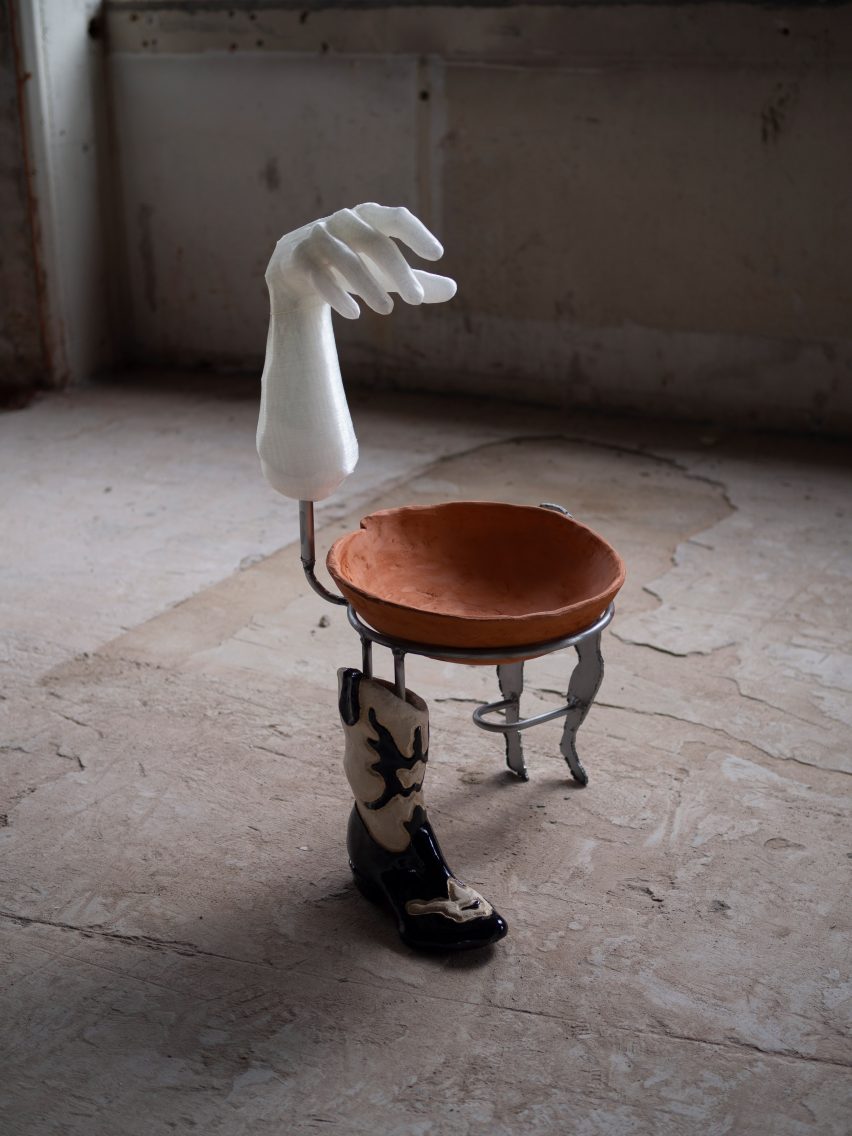
Homo-Delicatus is an elevated bowl that references characteristics used to single out homosexuals at different points in history, from physical traits to fashion choices.
It incorporates a 3D-printed limp wrist, a ceramic leather boot and a specific type of walk depicted in sheet metal.
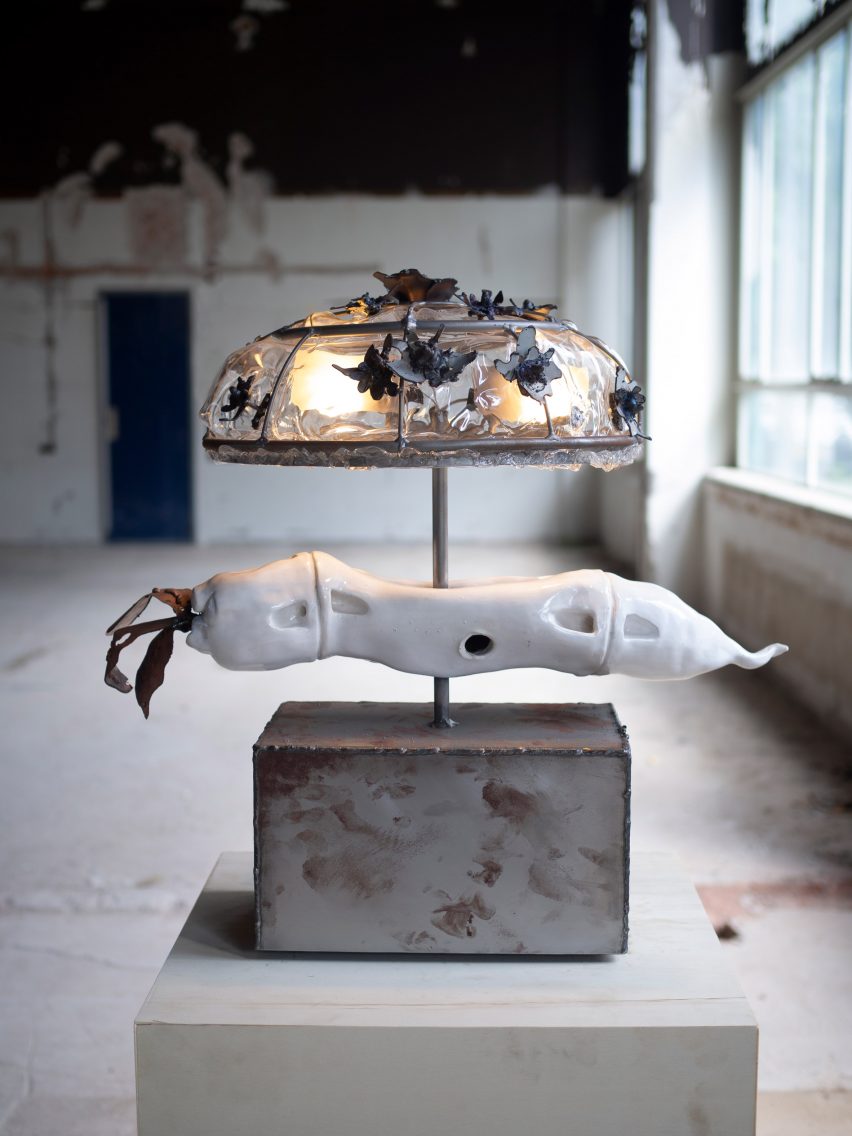
A table lamp called Violet Patriarchy explores homosexual behaviour in a master and slave relationship, which Maher found was common between the first and fifth centuries in London, or Londinium as it was then known.
The piece centres around a ceramic radish, which was infamously used by Ronan soldiers to rape warriors overcome in battle.
Purple-toned metal flowers decorate the lampshade, referencing the ongoing association between homosexuality and the colour purple.
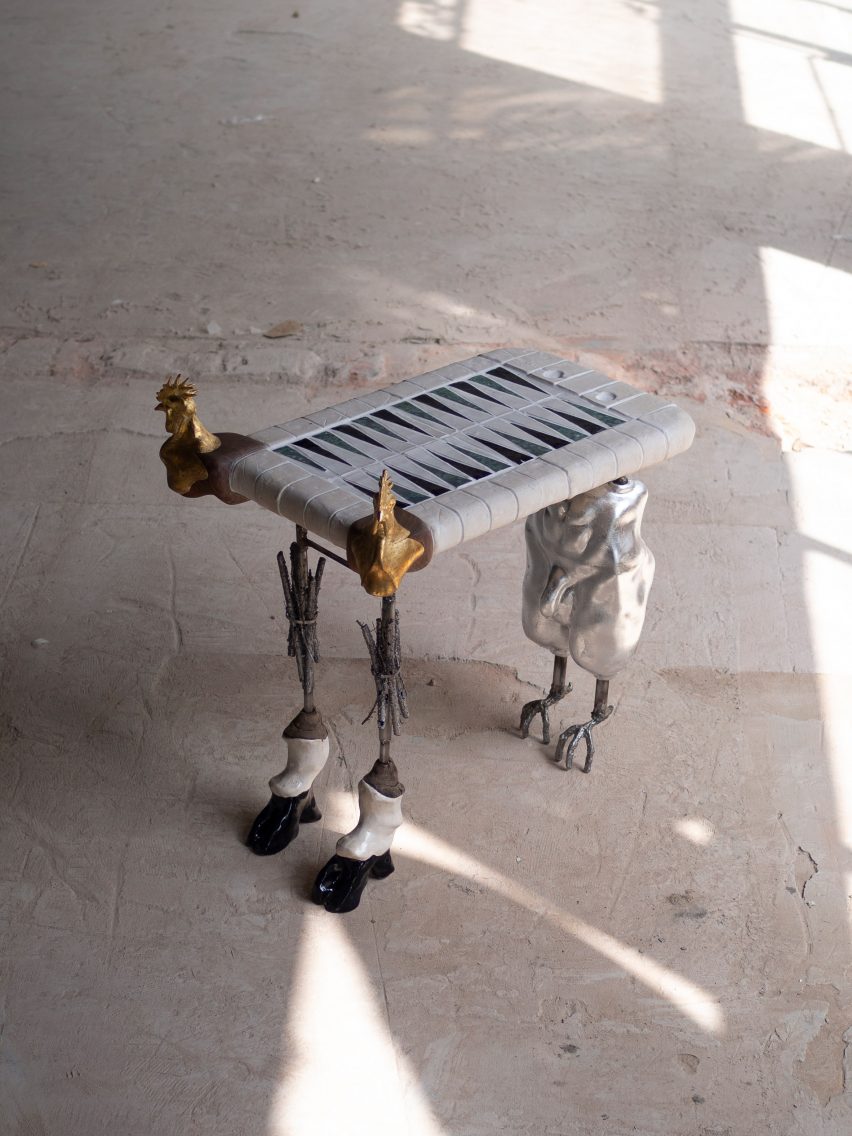
One of the most distinctive designs is a small table, which is titled Gentleman of the Backdoor.
This design explores different euphemisms used to describe homosexual men in England in the 18th century. These include "faggot", a word that Maher said was "once used to describe a bundle of sticks on which accused sodomites were burnt to death".
A backgammon board references the slang term "backgammon players", while mouldings of cockerel heads and a young man's crotch refer to the term "ganymede", typically used to describe an effeminate queer boy.
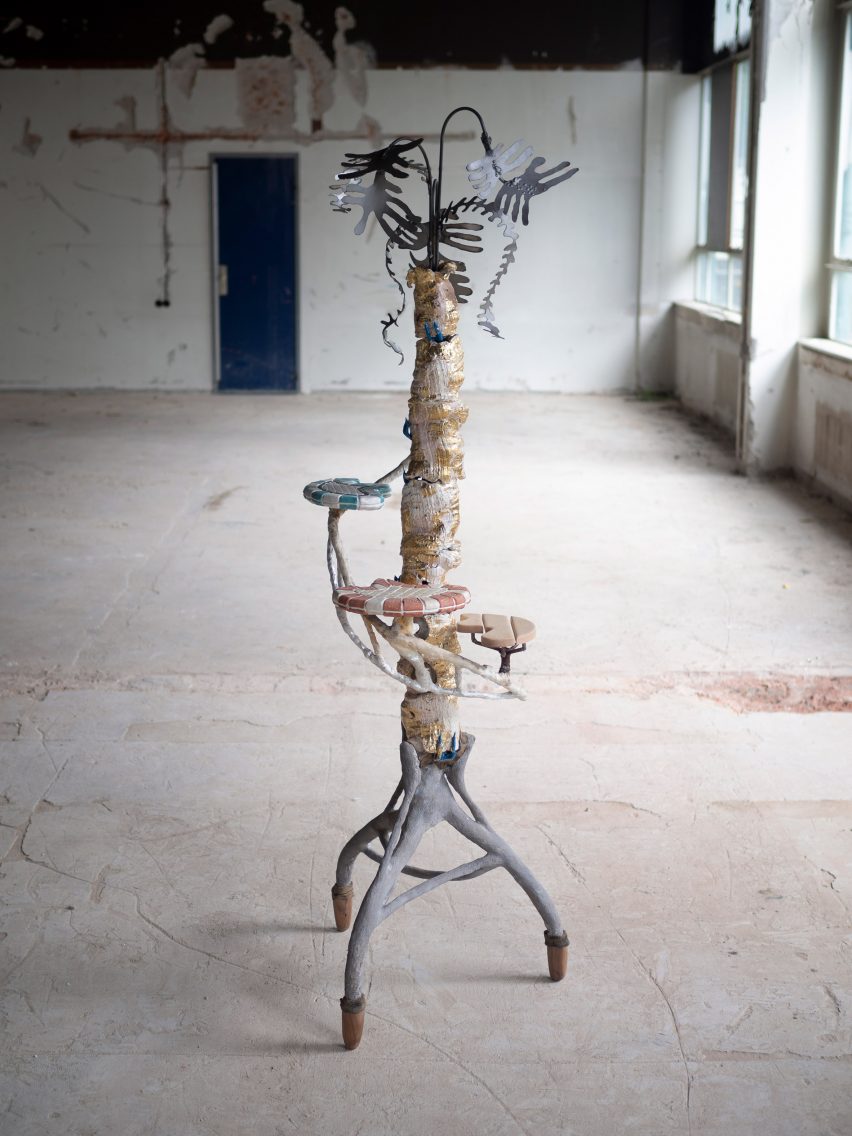
The culture of cruising is topic explored by a piece that appears to be a coat stand, which includes references to saunas, public toilets and Turkish baths.
The fifth piece, called Polari, is a side table that focuses on language. It features a series of words used by homosexuals to avoid attracting attention to themselves.
The piece is topped by a metal flower, representing the green carnation worn by Oscar Wilde – who was trialled and prosecuted for his homosexuality in 1895 – as a symbol of his queerness.
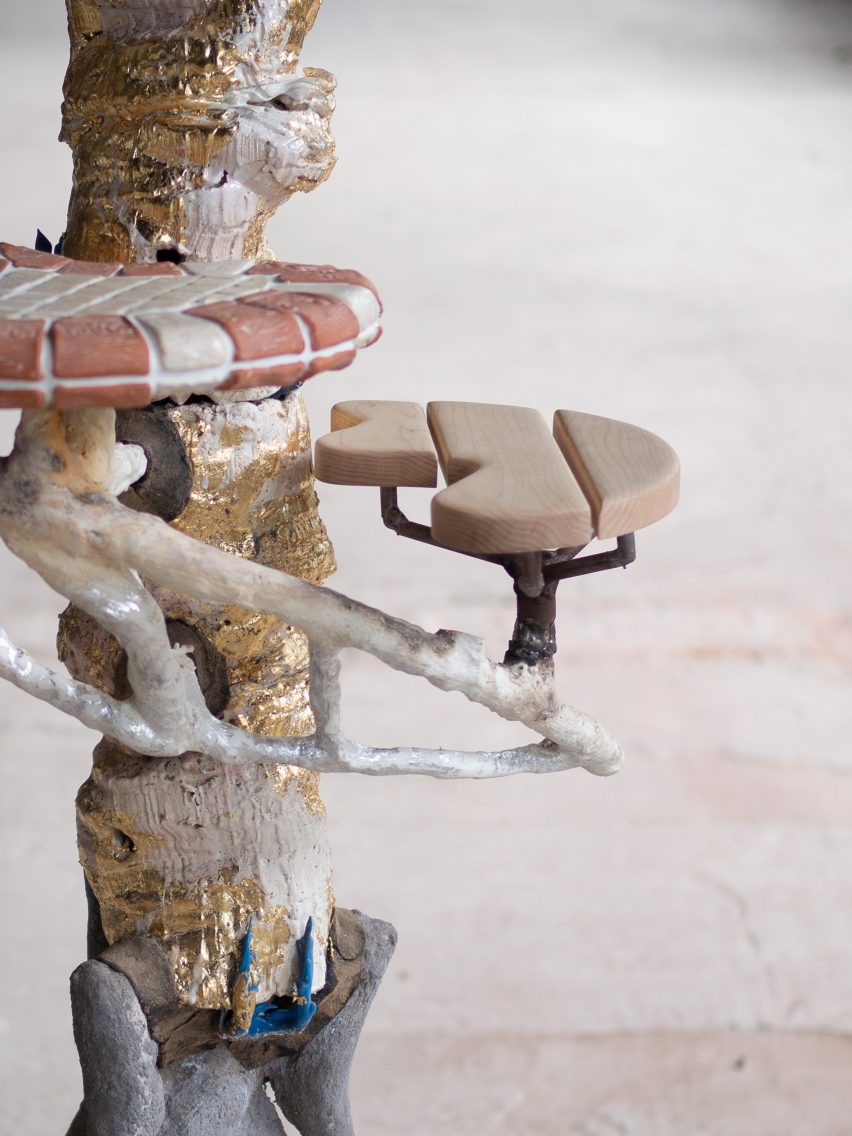
"All these references just started to repeat and overlap and adjust themselves as the enquiry extended," explained Maher.
"This was something that captured me, something that deserved to be spotlighted with the luminescence of more conservative narratives, but admired for its queer, chaotic assembly of history at the same time."
The designer worked with a range of different materials and craft techniques to produce each, which lends the designs a collage quality.
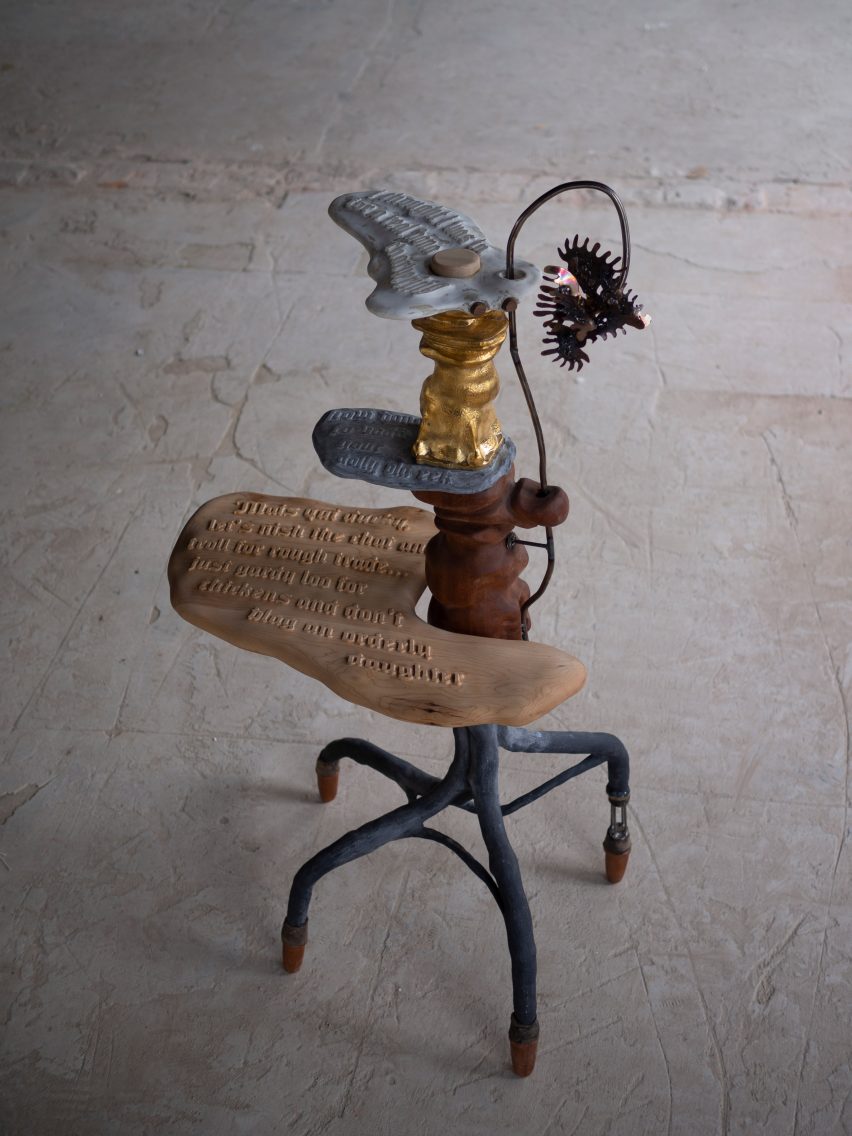
In each case, Maher chose the material that he felt best fitted the idea rather than trying to make things fit aesthetically.
"Materials were really chosen with my knowledge over how to manipulate them," the designer told Dezeen. "For instance, I knew I could better sculpt the chicken heads digitally and 3D print them, rather than carve them from a block of wood."
"Although there was definitely something conscious about suggesting some kind of regality to their aesthetic," he added, "gilding them with gold leaf an attempt to offer them the aesthetic of typical iconography."
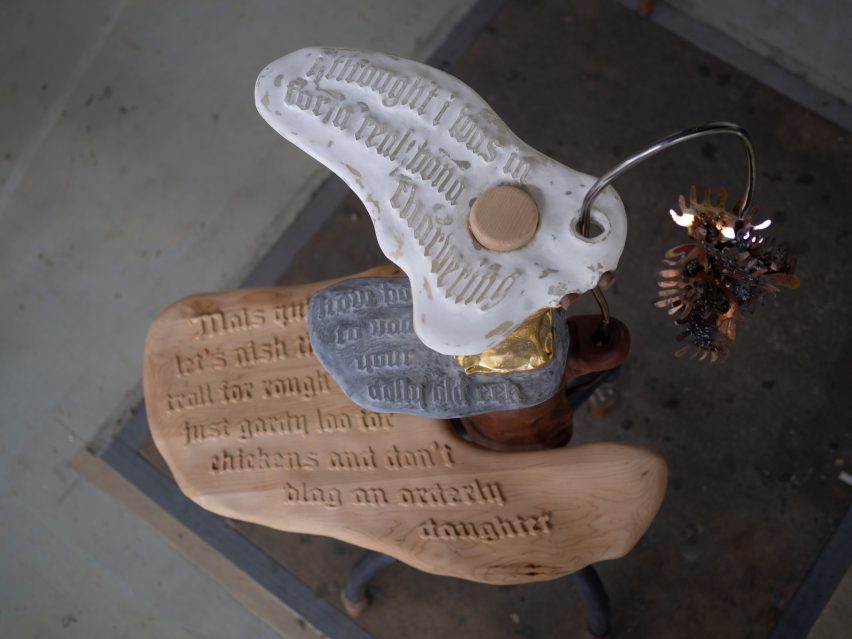
The designs were exhibited at the Design Academy Eindhoven graduate show, where other projects on display included garments designed to heal trauma, a giant dress and tools for turning human breath into clouds.
Maher said that very little of his designs is based on his own experiences, but that he "growingly finds the traces" in his own life.
He hopes that the project will provoke discussion about the transcultural nature of homosexuality.
"I find it really beautiful and a great privilege to see these queer narratives in an environment where they can finally have discourse, not only with one another but past their previous confines," he said. "It has taught me a lot about pride."
The DAE Graduation Show 2021 was exhibited from 16 to 24 October, as part of Dutch Design Week. See Dezeen Events Guide for an up-to-date list of architecture and design events taking place around the world.